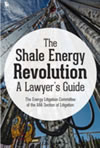All Articles
Accounting
Land Use
Appraisal & Valuation
Law Enforcement
Archaeology - Archeology
Legal Issues
Arms - Guns - Weapons
Logistics - Reverse Logistics
Artificial Intelligence (AI) / Machine Learning (ML)
Marine - Maritime
Attorney Fees
Mediation
Construction
Medical - Medicine
Corrosion
Metallurgy
Cosmetology: Hair / Makeup
Mining
Criminology
Nursing
Dental - Dentistry
Pharmaceuticals
Environment
Pharmacy & Pharmacology
Expert Witnessing
Plants & Trees
Family Issues
Premises Liability
Feng Shui
Professional Malpractice
Forensic Analysis
Professional Skills
Forensics
Psychiatry
Forgery & Fraud
Psychology
Healthcare
Public Speaking
Human Resources
Speech-Language Pathology
Injury
Spirituality
Insurance Coverage Analysis
Supply Chain Management
Internet Marketing
Terrorism - Homeland Security
Jails - Prisons - Correctional Facilities
Toxicology
Land Mapping - Surveying - Zoning
Transportation
More...

FORENSIC-PSYCHIATRY-PAGE ARTICLES MAIN PAGE
. Contact Us if you are interested in having your work published on our website and linked to your Profile(s).
All Articles
Anger Management & Related Issues
Hotels & Hospitality
Appraisal & Valuation
Human Factors
Arms - Guns - Weapons
Insurance
Artificial Intelligence (AI) / Machine Learning (ML)
Insurance Coverage Analysis
Boating
Intellectual Property
Chemical Industry
Land Use
Construction
Law Enforcement
Counseling
Legal Issues
Crime Scene Investigation
Life Expectancy - Life Care Planning
Criminology
Linguistics
Damages
Marketing
Design
Medicine
Elevators - Escalator - Automatic Doors
Meditation
Employment
Mining
Enterprise Resource Planning (ERP)
Oil & Gas
Environment
Patents
Exercise & Fitness
Product Liability
Expert Witnessing
Public Speaking
Feng Shui
Radiology
Fires & Explosions
Recreation & Sports
Forensic Analysis
Risk Management
Forensic Psychiatry
Taxation
Forensics
Telecommunication
Forgery & Fraud
Terrorism - Homeland Security
Healthcare Facilities - Hospitals
Yoga
More...
Featured Articles
There are no active articles here at this time. Please use the search bar, try another category, or contact us if you would like to contribute an article.
This Article is unavailable. Contact Us
Search articles by title, description, author etc.
Sort Featured Articles
Featured resources
The Shale Energy Revolution: A...
by Jeffrey J. Brown
China and the Middle East: Venturing...
by James M. Dorsey, PhD
The Coin Collector's Survival Manual,...
by Scott Travers
Follow us










